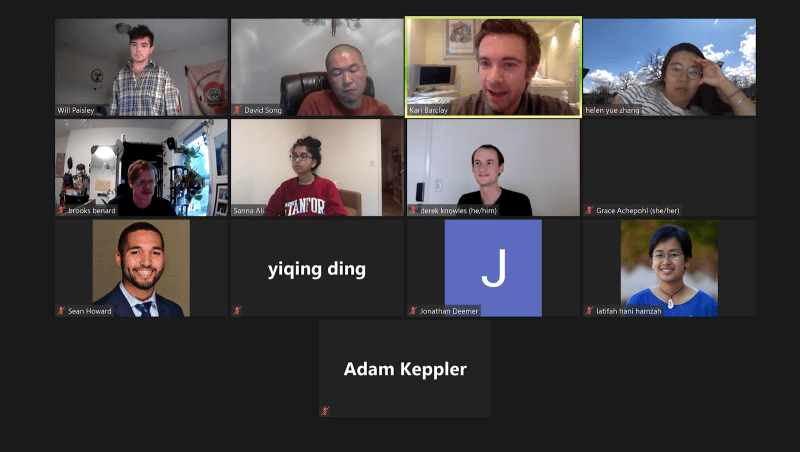The Graduate Student Council (GSC) debated a resolution that would recommend that all resident assistants (RA) and community associates (CA) undergo mandatory training on naloxone, a medication that can treat narcotic overdose in an emergency situation, at its meeting Wednesday night. The Council also praised University efforts to create social pods and allow essential visitors on campus.
The Council plans to vote on the naloxone resolution at its next meeting. The training, which would also be open to all members of the Stanford community, would function through a partnership with Santa Clara County, which is offering to provide naloxone rescue kits to dorms and houses, as well as free naloxone training to anyone who is interested.
“The students I’m working with have already ordered 300 units of naloxone and they’re looking to ramp that up into the thousands,” said Councilor Grace Achepohl M.S. ’21. “So their goal would be for almost every student to be able to have naloxone on them.”
The topic comes on the heels of increased opioid addictions in the United States during the COVID-19 pandemic. According to a 2019 Stanford alcohol and drug undergraduate survey, around 12% of undergraduate respondents reported using drugs other than alcohol, marijuana and nicotine. And in January, a Stanford student died from a fentanyl overdose.
Just weeks after the overdose, the Undergraduate Senate discussed a resolution to place kits with Narcan — a naloxone nasal spray — in student residences. The resolution was later tabled, with some senators expressing concern that the resolution needed more research and planning.
At Wednesday’s meeting, some councilors raised concerns over whether privacy restrictions at the graduate level would limit the effectiveness of the trained CAs in treating drug overdoses.
“As a CA, some of us can be responsible for about 220 people, and we have a really limited ability to intervene,” said Councilor Helen Yue Zhang, a third-year Ph.D. Biology student who also chairs the Council’s funding committee. “For example, even if we find out that there is someone smoking in the building, we are not allowed to knock on the door. So I just don’t know how we can implement it with that being the case.”
Council Co-Chair Kari Barclay, a fifth-year theater and performance studies Ph.D. student, said that he is excited to work toward expanded drug-safety training once the Council “clarifies the level of implementation that would differ between undergraduate and graduate students.”
The Council also briefly discussed Stanford’s Wednesday announcement regarding the implementation of “social pods,” or “households” consisting of eight or fewer students, and the allowance of essential visitors on campus. According to Barclay, the Council was granted access to the policy and given the opportunity to provide feedback on Tuesday before it was announced.
Council Co-Chair Will Paisley M.A. ’21 noted that the Council has worked to encourage the University to seek out responsible solutions to reducing the level of isolation for students on campus.
“The administration is trying to strike a marked balance between having social life and having safety during the COVID times, and we appreciate the efforts they are taking to allow students to have actual physical interaction in a very safe manner,” Paisley said.
Contact Tammer Bagdasarian at tbag ‘at’ stanford.edu.
